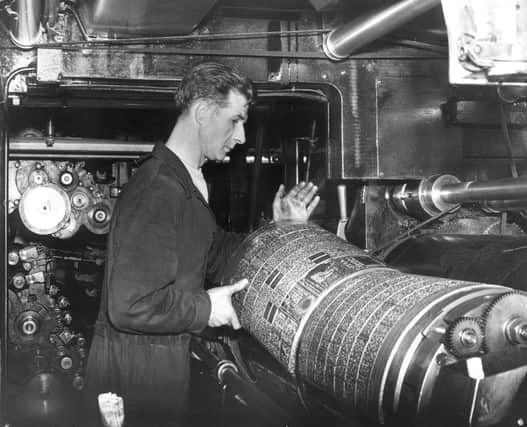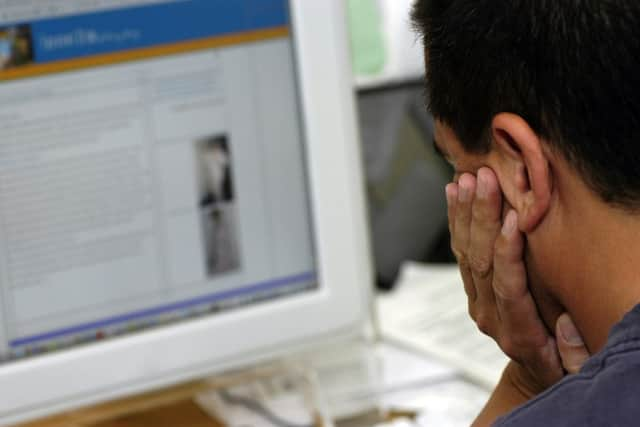Martyn McLaughlin: Old & new media must halt feuds


Navel gazing is an unbecoming habit of the media, but on occasion it can be constructive to take time to squint blindly into the future. Last week, I took part in a panel at the Celtic Media Festival exploring the rise of Scotland’s new media and its repercussions for the established press. It was a spirited discussion, but so rapid is the process of disruption, even the most salient points raised may soon be obsolescent.
Scant attention has been paid in the mainstream media to the growth of ventures such as Wings Over Scotland, Bella Caledonia, Common Space and Newsnet. By my count, the past year has seen the public contribute close to £900,000 to these sites and others through a crowdfunding and traditional fundraising initiatives.
Advertisement
Hide AdAdvertisement
Hide AdA new vanguard is accruing significant sums. The most recent Indiegogo campaign by Wings Over Scotland drew in £108,000 last month, more than double its initial target. This wave is characterised as a flash in the pan, a legacy of an emotional referendum. The figures may be comparatively small, but the trend is here to stay. Those who dismiss it out of hand warrant accusations of Luddism.


As a newspaperman, I am expected to revile these digital interlopers. This is a petty, misconceived principle which continues to find favour. The clout enjoyed by this emergent media sits uneasily with traditionalists who regard their position in Scottish civic life as sacrosanct.
A minority in the press rail against the wrathful polemic of online scribes who target individuals and revel in their own cruelty, yet defend the august print trade’s right to find room in one of its best-selling titles for a controversialist who compares migrants to cockroaches.
A wider disdain for the volunteerism of nascent digital ventures is borne not from the commendable belief that hacks should be paid, but a self-conceit which dictates that journalism is the preserve of salaried professionals. At a time when newspaper proprietors the world over are engaged in a destructive cycle of systematic retrenchment, this is at best an anachronistic view.
The other glove throws punches just as wayward. Some in the new media make the blithe assumption that it is a matter of time before they displace the dreaded mass media construct. The reality is that the online stature of established providers such as this newspaper are vast by comparison. They believe their mainstream counterparts to be engineers of nefarious conspiracies etched on the back of Peat Inn menus, a premise which charges the entire fourth estate with the sins of a few.
Those left indignant when a certain quote, event or viewpoint goes unheeded are so blinded by partisan instinct that they are unwilling or unable to consider issues such as news values or plurality. The word bias is bandied about just as fairweather football fans, buoyed by the roar of the crowd, call wrongly for offside. Cock ups are perceived only through the prism of conspiracy.
This seething antagonism is rooted in a polarised political climate, a primetime bout where Nationalists vs Unionists top the bill. The media at large is duty bound to deconstruct this fractious narrative; instead, the old guard and the new perpetuate it.
No -one wishes for a harmonious media but it is in all our interests to consider what the future holds for the newest players in the media landscape. Some believe mergers and pooled resources to be the way forward; given how the ether is littered with the cadavers of failed online news sites, institutional stability is essential, but amalgamation threatens to diminish their idiosyncrasies.
Advertisement
Hide AdAdvertisement
Hide AdAt their best, these sites demonstrate a vigour found fleetingly in the rest of the press. They can be offensive and misinformed but such foibles have found newsprint to be a welcoming home over the years.
Their greatest challenge lies in maintaining momentum. Drawing in readers thanks to a shared political ideology is easy; keeping them requires a deeper trust, the kind only quality journalism can provide.
Too many stay true to their genesis as media monitors. Out of a dozen stories on the front page of one well-known site I visited recently, five were concerned with BBC coverage.
There is a place for holding the media to account, but in isolation, it is a prohibitive and lumpen remit. If Scotland’s digital parvenu are intent on changing minds, they must embrace orthodoxy and invest in original reporting.
Common Space has impressed with its exclusives on Dungavel detention centre and Castle Toward in Argyll and Bute – a rare non-political story. Still it is the press and the BBC who supply the canvas for debate by consistently breaking stories that set the news agenda: the others add daubs of colour.
A wider shift from reactive to proactive reporting that is rigorous and unafraid to criticise allies would grant legitimacy to the newcomers and attract audiences beyond their indigenous echo chambers.
For the traditional media, the challenge continues to better represent grassroots voices while maintaining quality and monetising new distribution models. This is chiefly a test for the press, but increasingly, established broadcasters, hamstrung by regulation and dwindling budgets, face losing disenfranchised audiences to fledgling initiatives such as Newsshaft and Left:Scotland.
Both sides can prosper in a climate of respect and fulfil the public appetite for news at an extraordinary time in Scottish life. Stoking opprobrium and wishing for the demise of competitors merely reaffirms embedded habits and dissuades people from seeking out as broad a range of coverage as possible. No journalist should desire that.
One day, perhaps, we will all have a convivial rendezvous over truffled potato beignets at the Peat Inn. The crowdfunder for dinner starts here.